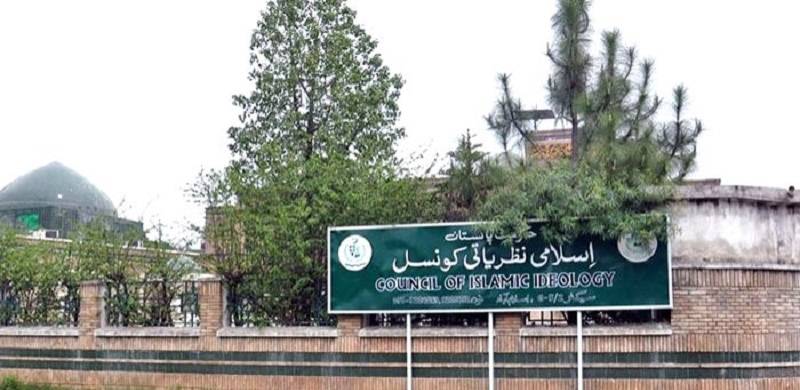
The Council of Islamic Ideology (CII) has entered the debate over the National Accountability Bureau (NAB) Ordinance, declaring some parts of it to be contrary to Islamic Shariah. This is not the first time in recent years that the CII has waded into the midst of political and policy-level debates in the country, or stirred controversy in doing so.
Many of the CII's more publicized forays into public affairs have been around the place of women and legislation that concerns their safety and rights.
In 2013, the official religious watchdog had upheld the principles of the Hudood Ordinance from the era of General Zia-ul-Haq's regime. The CII took the view that DNA testing was not acceptable as a form of primary evidence in cases of rape, and could, at best, be permissible as supporting evidence.
During the same year, the body had also spoken out against demands from certain religious figures that the country's blasphemy laws be reformed so as to prevent incidences of false allegations against innocent people.
In 2014, the Council had declared that Pakistan's Muslim Marriage Law of 1961 had un-Islamic clauses, with the then CII chief Maulana Mohammad Khan Sherani taking the view that girls even at the age of 9 were eligible for marriage, subject to “signs of puberty”.
In 2016, the CII had come out against the Women Protection Act in the Punjab Assembly, proposing its own alternative bill which allowed for, among other things, husbands to “lightly beat” their wives.
More recently, in 2019, the organization had stated its view that the use of “Bint-e-Pakistan” (daughter of Pakistan) in place of the father's name on a woman's documents was unacceptable from a religious point of view.
Last year, the Council had also been involved in the controversy that stemmed from Federal Science and Technology minister Fawad Chaudhry's initiative to provide a mobile app that relies on a lunar calendar for religious observances through the year. The CII's position had been that it was necessary to retain the role of the Ruet-e-Hilal Committee and its mandate to physically sight the appropriate moon for religious observances and festivals.
Many of the CII's more publicized forays into public affairs have been around the place of women and legislation that concerns their safety and rights.
In 2013, the official religious watchdog had upheld the principles of the Hudood Ordinance from the era of General Zia-ul-Haq's regime. The CII took the view that DNA testing was not acceptable as a form of primary evidence in cases of rape, and could, at best, be permissible as supporting evidence.
During the same year, the body had also spoken out against demands from certain religious figures that the country's blasphemy laws be reformed so as to prevent incidences of false allegations against innocent people.
In 2014, the Council had declared that Pakistan's Muslim Marriage Law of 1961 had un-Islamic clauses, with the then CII chief Maulana Mohammad Khan Sherani taking the view that girls even at the age of 9 were eligible for marriage, subject to “signs of puberty”.
In 2016, the CII had come out against the Women Protection Act in the Punjab Assembly, proposing its own alternative bill which allowed for, among other things, husbands to “lightly beat” their wives.
More recently, in 2019, the organization had stated its view that the use of “Bint-e-Pakistan” (daughter of Pakistan) in place of the father's name on a woman's documents was unacceptable from a religious point of view.
Last year, the Council had also been involved in the controversy that stemmed from Federal Science and Technology minister Fawad Chaudhry's initiative to provide a mobile app that relies on a lunar calendar for religious observances through the year. The CII's position had been that it was necessary to retain the role of the Ruet-e-Hilal Committee and its mandate to physically sight the appropriate moon for religious observances and festivals.
